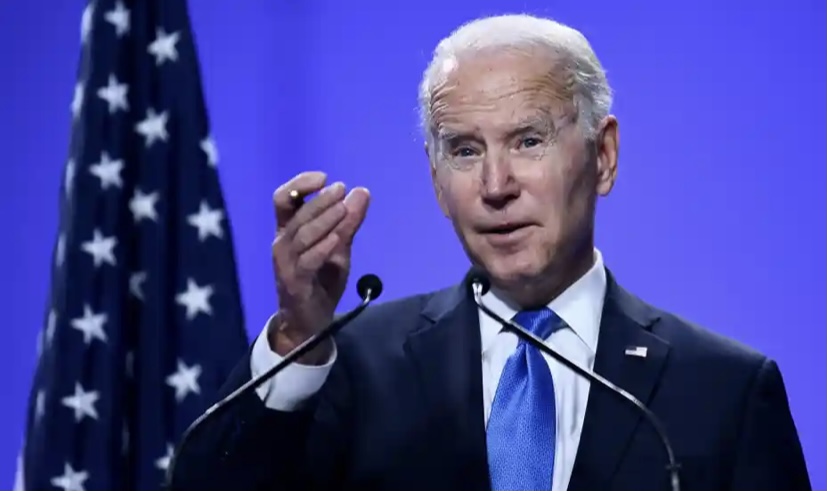03 November 2021

‘It is a gigantic issue and they just walked away,’ says US president, who also criticises Russia’s failure to attend Cop26.
Joe Biden launched a stinging attack on China on Tuesday for the failure of the country’s president, Xi Jinping, to show up to the Cop26 UN climate summit, and failing to show leadership on the climate crisis.
The US president said it was a “big mistake” that his Chinese counterpart had chosen not to attend the summit, where more than 120 world leaders have spent the last two days discussing ways to limit global temperature rises to 1.5C.
“We showed up,” Biden told a press conference, speaking before world leaders departed, to leave the floor to their ministers and officials for two weeks of tense negotiations.
“They didn’t show up … It is a gigantic issue and they just walked away,” he said, also criticising Russia and Vladimir Putin.
”How do you do that and claim to have any leadership mantle?”
China delivered a plan for emissions reductions on the eve of the conference that many analysts found disappointing. Under the plan, the world’s biggest emitter would cause emissions to peak by 2030 and reach net zero by 2060, targets it had already set more than a year ago and which if not improved will make it difficult for the world to stay within 1.5C, the threshold beyond which scientists warn some of the impacts of climate breakdown will become irreversible.
Earlier in the day, Biden made a point of rejoining the “high ambition coalition” of developed and developing countries that ensured the 1.5C limit was included in the 2015 Paris climate agreement, reinforcing calls for big emitters to do more to cut carbon this decade.
Biden added, however, that he did not seek conflict with China and indicated he could take a softer stance if China stepped up with more measures on the climate. “This is competition, not conflict,” he said. “[Tackling the climate crisis] is an economic opportunity.”
Biden’s words at his final press conference reflect a hardening stance towards China more generally at the talks, from developed countries who want the world’s second biggest economy to go further, especially on phasing out coal, and developing countries who fear the 1.5C goal will slip out of reach without action to halve emissions this decade.
China’s head of delegation at Glasgow, the veteran official Xie Zhenhua, was also in a forthright mood earlier in the day, accusing developed countries of having failed the rest of the world, by failing to cut emissions fast enough and by failing to provide the developing world with $100bn a year in climate finance, which has long been promised, to help poor countries cut emissions and cope with the impacts of extreme weather. China does not receive climate finance but sees itself as a champion of developing country interests.
He defended China’s use of coal, saying building a limited number of new plants was necessary to bridge the gap while China updated its energy grid for more renewables, adding that the new plants were highly efficient and replaced old, inefficient plants that were being decommissioned.
But he said that he had spoken extensively to John Kerry, Biden’s climate envoy, and to the UK’s Alok Sharma, who is president of the talks. He said those conversations had been “highly constructive”
Jean Su, energy justice director at the Center for Biological Diversity, said: “At Biden’s press conference we saw the whiplash of his rhetoric on climate in action. First he asks Opec to pump more oil, then describes his worry about the horrors of climate change.
“To set his climate ambition straight, it would be profound and game-changing for him to return to Washington and declare a national climate emergency to halt crude oil exports. That’s just one of the tools Biden has to take transformative action on climate without Congress. Biden sounds just as worried as the rest of us, but he has power unlike anyone else’s. For the sake of us and the planet, he has to use it.”
Boris Johnson, the UK prime minister, delivered an upbeat assessment of the prospects for a deal at the conference that would keep the 1.5C goal within reach, despite having warned at the weekend that the chances were slim.
The Guardian
